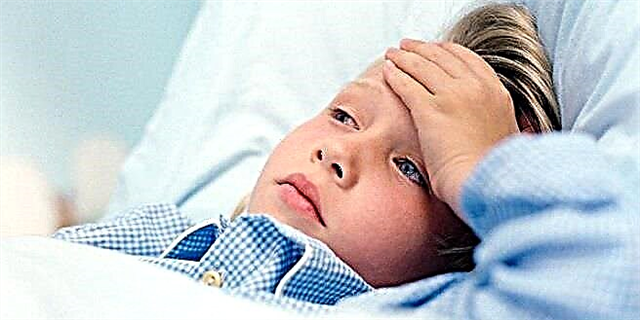
When it becomes necessary to choose medicines for a child, many parents tend to herbal preparations. They are produced in a large assortment by different pharmaceutical companies in the form of syrup, tablets, lozenges, ointments, creams, mixtures and other dosage forms. One of the popular lines are drugs called Doctor Mom. When are they prescribed to children and how are they properly used in childhood?

Release form
Medicines Dr. Mom are produced in the following form:
- Syrup. It is a pineapple-scented dark green, thick liquid that is sold in 100 ml bottles with a measuring cup.
- Lozenges. They are presented in 7 different flavors of round candies. These herbal lozenges are sold in packs of 16-24 pieces packed in blisters or strips.
- Ointment. It is represented by a translucent white substance with the aroma of camphor and menthol. The ointment is placed in plastic jars in the amount of 20 g in each package.
Composition
Each of Doctor Mom's preparations has its own active substances, represented mainly by natural and herbal ingredients:
- Syrup contains extracts of 10 plants, among which there are extracts from nightshade, licorice, basil, ginger, turmeric and aloe. In addition, this drug includes levomenthol, and additional substances in this form of the drug are pineapple flavor, sucrose, dyes, water, glycerol and other compounds.
- Ointment base are camphor, nutmeg oil, turpentine oil and levomenthol. The composition also includes thymol and eucalyptus oil, and the only auxiliary ingredient is white paraffin in a soft form.
- The main components of lozengesextracts from ginger, licorice and emblica, supplemented with levomenthol, act as providing their therapeutic effect. In addition to them, candies include glycerol, sucrose, various colors, flavors and other ingredients.
Operating principle
Dr. Mom's drugs act on the body of a sick child in a complex way:
- The syrup has an expectorant and bronchodilator effect. Its plant-based formula helps to clear phlegm and bronchial tubes, and also reduces inflammation. Thanks to menthol, the drug also has an antiseptic and antispasmodic effect.
- The ointment has a distracting and local irritant effect. The medicine acts locally, ensuring the activation of the nerve receptors of the skin and its blood vessels. Turpentine in the composition of the product has a warming effect and helps to relieve pain. Thymol and eucalyptus oil have antiseptic and antimicrobial effects, and thanks to nutmeg oil, the medication reduces the activity of inflammation. The ointment applied to the chest or nasal skin also has an inhalation effect.
- In lozenges, anti-inflammatory and analgesic effects are noted, which are due to the presence of ginger and emblica in the lozenges. Menthol in such a medicine helps to get rid of spasms and has antiseptic properties, and thanks to licorice, the medicine also has an expectorant effect.

Indications
The Dr. Mom line is in demand for diseases, one of the manifestations of which is cough. Drugs are especially often prescribed for dry cough caused by bronchitis, tracheitis, laryngitis, pharyngitis, ARVI and other pathologies. An ointment is also prescribed for the common cold to relieve nasal congestion. This form is also effective for muscle pain or headaches.

From what age is it allowed to take?
The syrup is allowed to be used in children over 3 years old. The use of the ointment has the same age restriction. Both drugs are approved for use in children three years of age and older, but should be used with caution so as not to provoke allergies.
The instructions for the lozenges warn that this remedy should not be taken by children under 18 years of age. This is due to the presence of chemicals in the composition, the large size of the lozenges and the lack of clinical studies in children. but in practice, this form is often assigned to adolescents 14 years of age and older.

Contraindications
Do not give Doctor Mom drugs if:
- The child has a hypersensitivity to any ingredient in the medicine.
- The baby has hereditary pathologies in which the metabolism of carbohydrates is impaired (such a contraindication is relevant for syrup and lozenges).
- The child has damage to the skin or skin diseases such as eczema or dermatitis (this is a contraindication to using the ointment).
In addition, caution in syrup treatment requires the presence of diabetes mellitus in the child, and the ointment is not recommended for bronchial asthma.

Side effects
Since all Doctor Mom medicines are based on natural ingredients, a child may experience an allergic reaction to any of them. It may look like an itchy rash, an uncomfortable feeling in the abdomen, swelling of an area of the body, or severe itching. If particles of the ointment are inhaled, bronchospasm or profuse lacrimation may occur. The occurrence of any of these side effects requires discontinuation of the medication and seeking medical attention to correct therapy.

Instructions for use and dosage
- The syrup is given 3 times a day, dosing the medicine with a teaspoon or a measuring glass. The dose is selected based on the age of the little patient. For children 3-5 years old, it is 2.5 ml of the drug, for children 6-13 years old - from 2.5 to 5 ml of the drug, and at the age of 14 years and older - from 5 to 10 ml.
- Ointment is lubricated exclusively on the skin 1-2 times a day (no more than 3 times), trying not to get on the mucous membrane. After application, the medicine is gently rubbed with a simultaneous light massage of the treated area. With rhinitis, the wings of the nose are lubricated with a remedy, with a cough - the upper part of the chest and back, with pain in the muscles - a painful area, and with a headache - the area of the temples.
- Vegetable lozenges are prescribed for adults 1 lozenge every two hours, but no more than 10 pieces in one day. The drug is not gnawed or swallowed, but slowly dissolves in the mouth.
- How long to take syrup, treat with ointment or dissolve lozenges should be determined by the doctor. Usually, the duration of admission is up to 2-3 weeks. If treatment is required to continue, you must first consult with a specialist.


Overdose
In the annotation to the preparations, it is noted that high doses of any of the types of Doctor Mom did not have a negative effect on the human body.
Interaction with other drugs
None of the drugs should be combined with drugs that block the cough reflex or reduce mucus production in the bronchi. With this combination, the patient's condition will only worsen, since sputum will stagnate in the pulmonary tract.

Terms of sale and storage
All medicines are available in pharmacies as over-the-counter medicines. On average, the price of a pack of lozenges is 120 rubles, a jar of ointment is about 140 rubles, and one bottle of syrup is about 160 rubles.
Storage
- It is necessary to keep records with lozenges, a bottle of syrup or a jar of ointment at home out of the reach of a small child. It is important that it is dry.
- The recommended storage temperature for the ointment is from 15 to 25 degrees Celsius, for syrup and lozenges - not higher than +30 degrees Celsius.
- In addition, you need to monitor the expiration dates of the medicine and not give the child the drug when this period has ended. For syrup, it is 2 years, for ointment - 3 years, and for lozenges - 5 years.

Reviews
Medicines Dr. Mom receive from parents and doctors mostly good recommendations. Mothers most often choose the drug in syrup, because it is easy to dose for a child of any age. The ointment is also in demand for colds and runny nose, especially if the disease has just begun. But most parents do not give lozenges to their children, but they themselves are happy to be treated with such a drug with a diploma of voice and dry cough.
The main advantage of any of the medicines is called their natural composition and safety, thanks to which you can safely take a syrup or use an ointment for several weeks. The parents' comments confirm the high effectiveness of the sweet medicine both with a wet cough with a very viscous secret, and with a dry cough, and ointments with a stuffy nose.

Analogs
Other herbal preparations in the same dosage form, for example, Gedelix, Bronchikum, Bronchipret, Prospan, Eucabal and other syrups based on extracts from ivy, thyme, marshmallow, plantain and other medicinal plants, can replace Doctor Mom's syrup.
Instead of ointment, Doctor Mom may recommend other topical remedies for rubbing in for coughs and sore throats. These include Vicks Active Balsam, Doctor Theiss Eucalyptus and Pulmex baby. The last of these medicines is allowed to be used from 6 months of age, and inhalation can also be done with the ointment from Dr. Theiss. Another option to replace Doctor Mom's ointment with a cold can be the Nopelka patch, used in children over 2 years old.
Other solid forms based on plant raw materials can serve as a substitute for Doctor Mom's lozenges for children, for example, tablets with Mukaltin marshmallow extract, Travisil herbal lozenges or Bronchicum C lozenges (they are allowed from 6 years old).
From the next program of Dr. Komarovsky, you will find out what other cough medicines are recommended for children.



